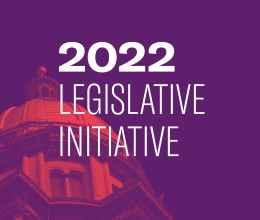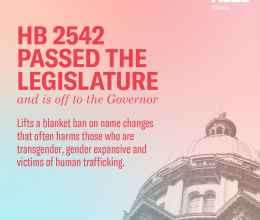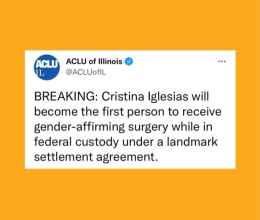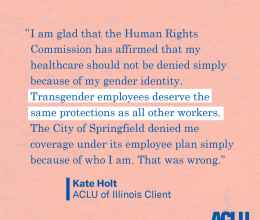Last week, Catholic Charities based in Joliet and Springfield submitted an amicus brief in a Supreme Court case, Fulton v. City of Philadelphia. The case involves whether a religious organization can demand government contracts to provide child welfare services while refusing to comply with LGBTQ nondiscrimination requirements.
In 2011, these same Illinois-based Catholic Charities groups brought a similar lawsuit in state court in Illinois, arguing they should be able to deny state-funded services contracted to them by the Illinois Department of Children and Family Services (DCFS) to unmarried couples, even if they entered into a civil union and were otherwise qualified to foster or adopt.
Because the case pre-dated the Illinois statute that recognizes that everyone, including same-sex couples, have the freedom to marry, Catholic Charities’ policy intentionally classified all same-sex couples as “unqualified” to provide loving homes for children. In the course of the Illinois litigation, child welfare experts offered testimony that allowing this form of discrimination harmed everyone – it deprived Illinois foster children of the care of loving families, and it discriminated against unmarried couples, including those in civil unions and especially same-sex couples who were fully qualified to act as foster or adoptive parents.
In response to the filing by Catholic Charities of Joliet and Springfield in the Fulton case, John Knight, Director of the LGBTQ & HIV Project of the ACLU of Illinois, issued the following statement:
“It is unsurprising that these Illinois Catholic Charities organizations believe they should be able to use Illinois taxpayer funds to discriminate in violation of the law. They made the same argument nearly a decade ago. They were wrong then, they are wrong now.
As we demonstrated in court in Illinois years ago, discriminatory policies that exclude LGBTQ parents from fostering and adoption do not protect children. They harm young people. And the best interests of children, not the religious affiliation or history of the provider, should be the sole priority of any child welfare system – including the one in Illinois.
The Supreme Court should put the children first – children who already have been subject to abuse and neglect – and reject the request of certain groups to use public funds to discrimination on the basis of their specific religious beliefs.”




